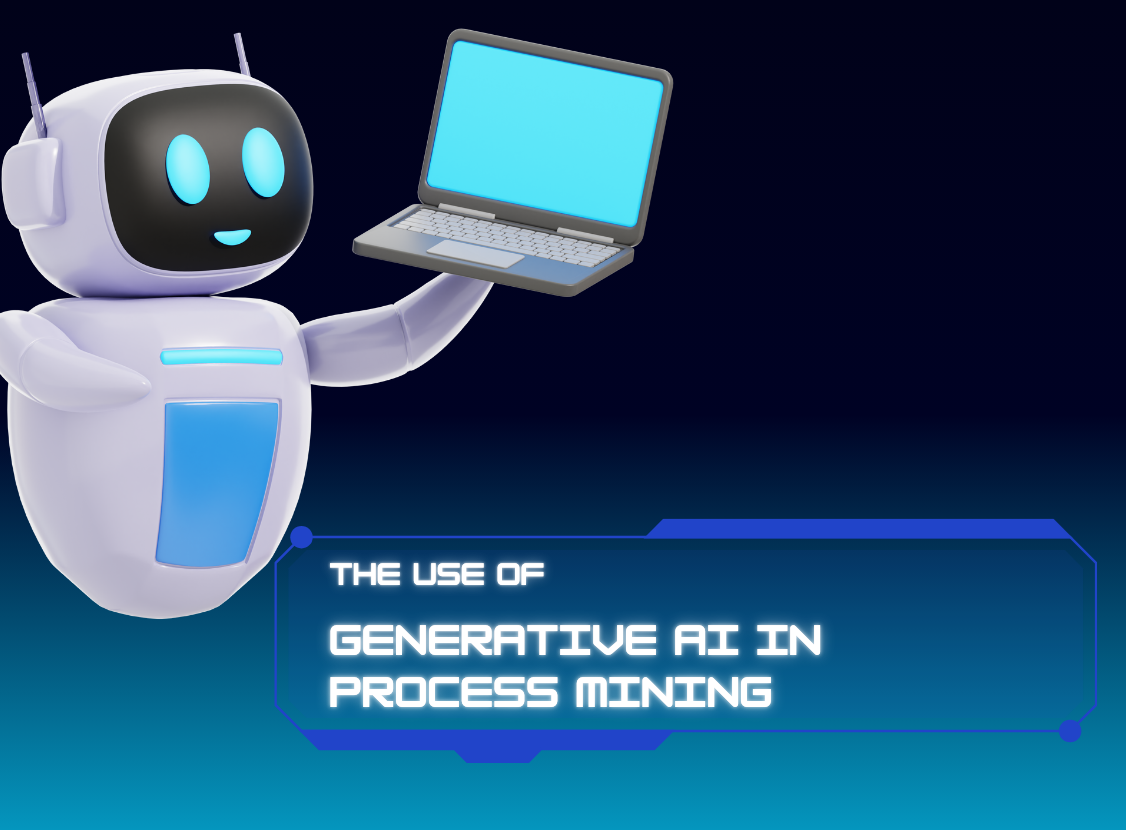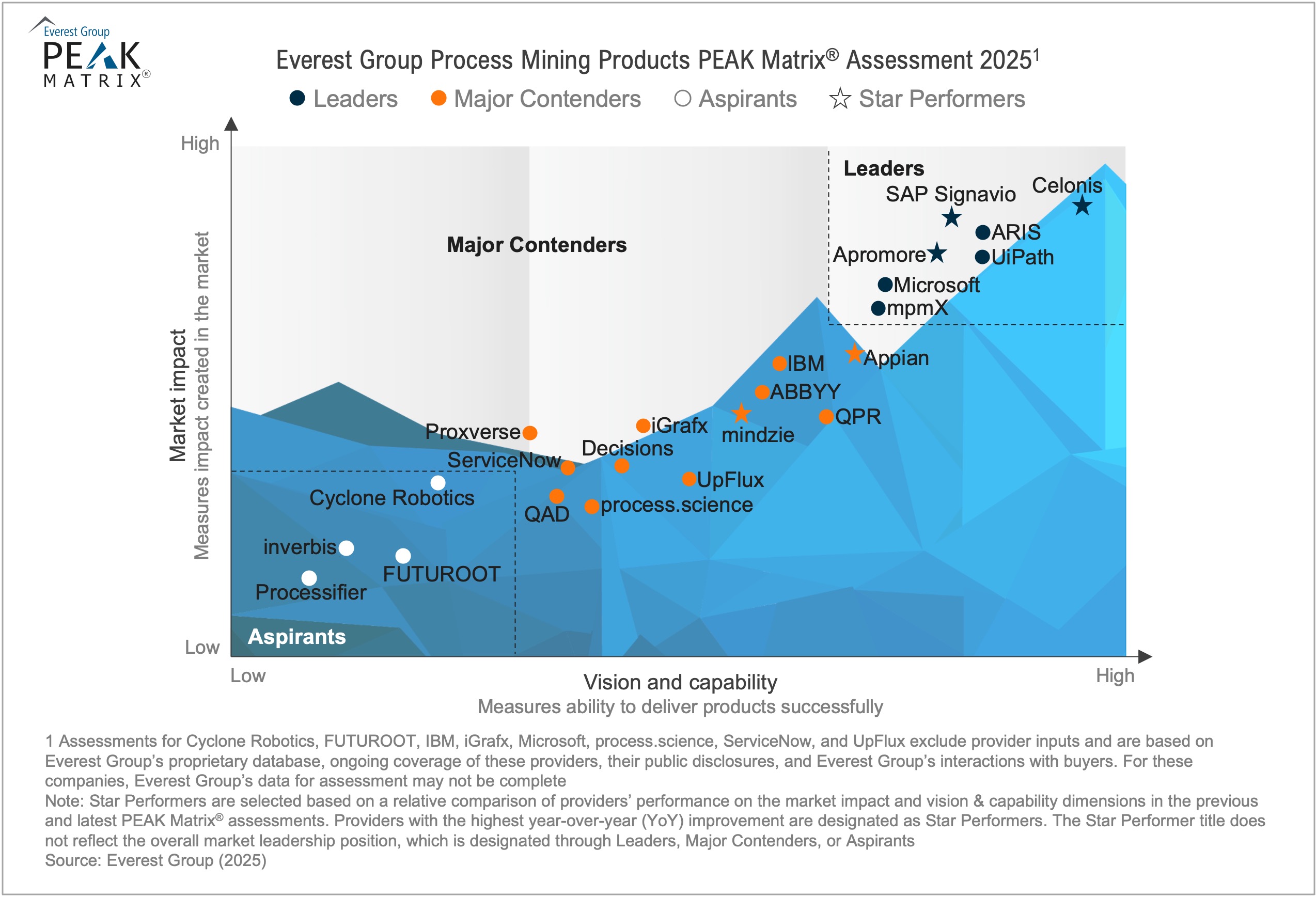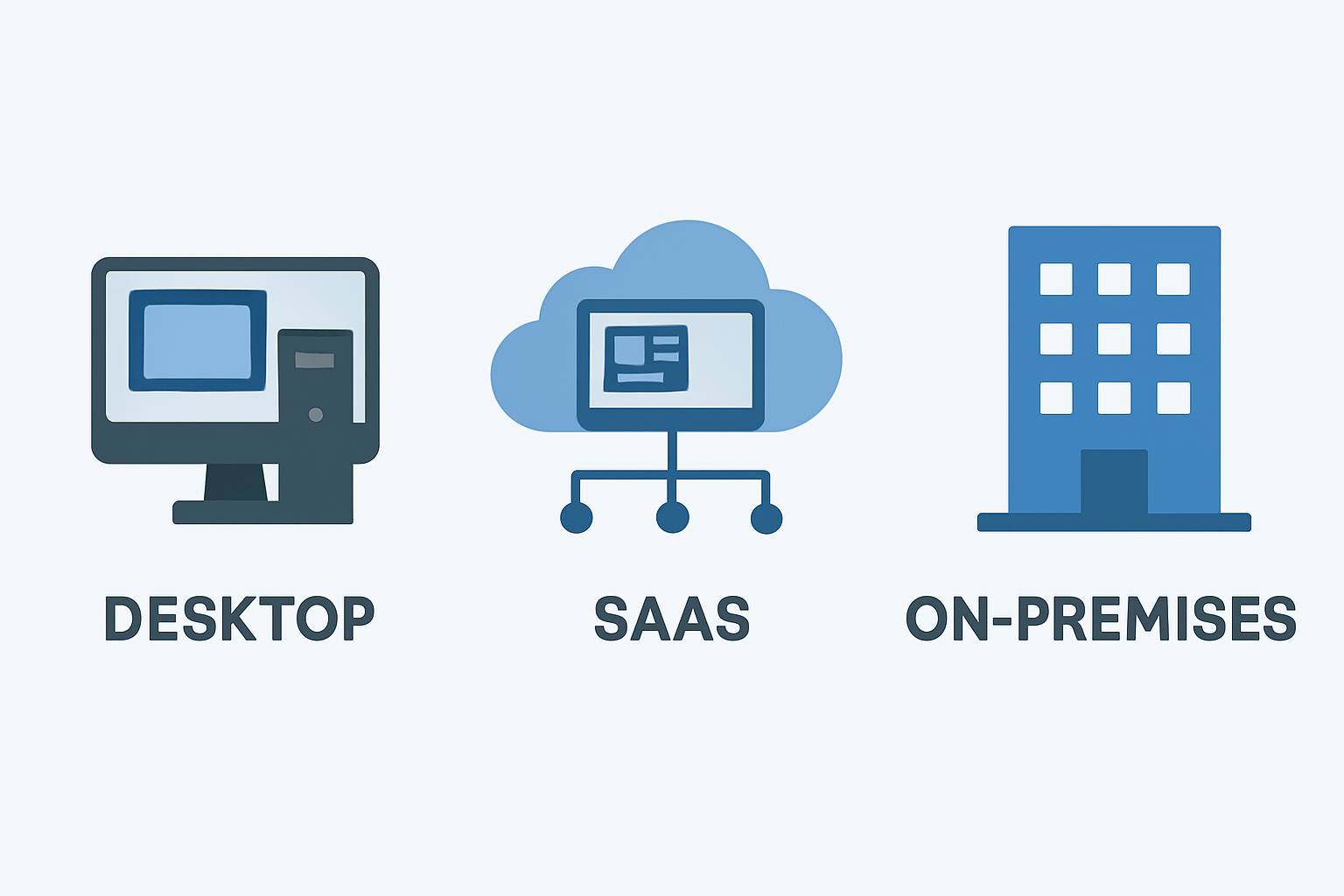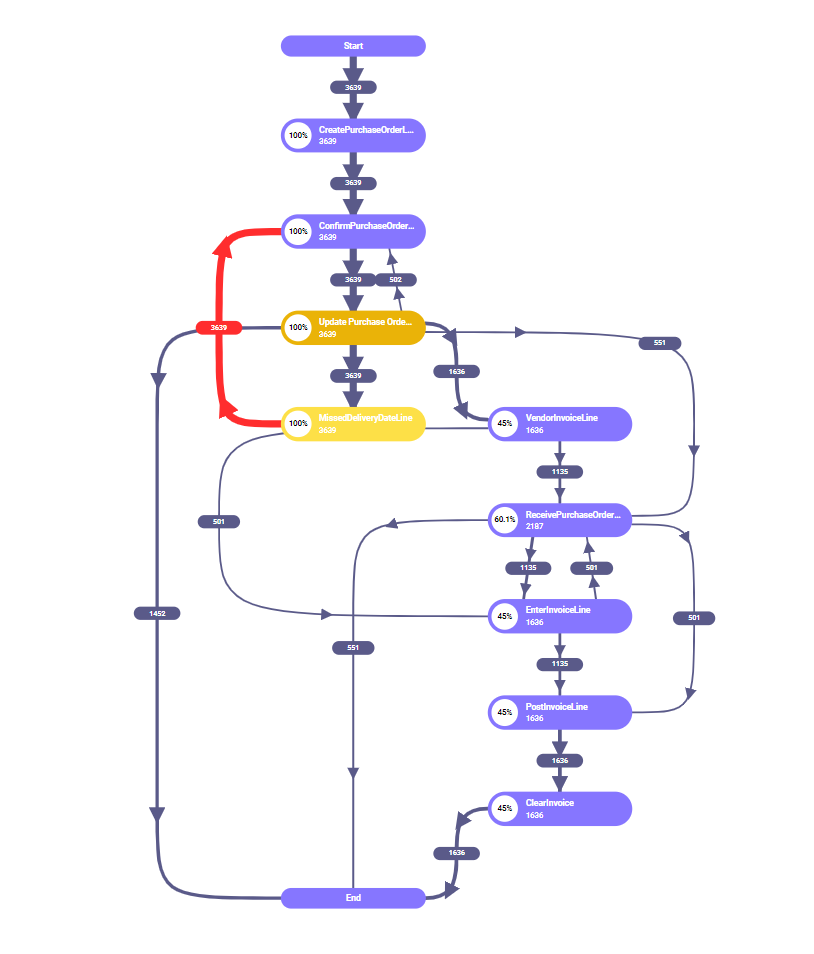The use of Generative AI in Process Mining
Process mining and generative AI are two powerful technologies that are revolutionizing the field of data science. Process mining involves extracting knowledge from event logs to gain insights into business processes, while generative AI focuses on creating new data instances based on existing patterns. The combination of these two approaches has the potential to unlock tremendous value in process mining initiatives.

Data science plays a crucial role in leveraging generative AI for process mining. It provides the foundation for analyzing and interpreting large volumes of data, enabling organizations to uncover hidden patterns, inefficiencies, and opportunities for improvement. By harnessing the power of generative AI, data scientists can enhance their analytical capabilities and extract even more valuable insights from process mining approaches.
In today’s fast-paced and competitive business landscape, organizations are constantly seeking ways to optimize their processes, reduce costs, and improve efficiency. Process mining with generative AI offers a unique opportunity to achieve these goals by providing a deeper understanding of how processes actually work and identifying areas for optimization. This technology enables businesses to drive digital transformation, streamline operations, and deliver better outcomes for their customers.
Benefits of Generative AI in Process Mining
By leveraging generative AI in process mining, organizations can:
- Identify bottlenecks and inefficiencies in their processes.
- Predict future process behavior based on historical data.
- Optimize resource allocation and reduce costs.
- Improve compliance and risk management.
- Enhance customer experience by eliminating process delays or errors.
In the following sections, we will explore:
- The fundamentals of process mining
- The intersection of generative AI and process mining
- The benefits and applications of generative AI in process mining through real-world case studies
- The challenges faced in implementing generative AI models for process mining purposes
- The future potential of this technology
- Actionable steps for readers to explore Mindzie’s free process mining desktop edition with generative AI for practical implementation.
Understanding Process Mining
Process mining is a data-driven methodology that involves the analysis of event logs from operational processes to improve business performance. By examining event data, process mining aims to provide insights into how processes are actually executed, rather than how they were designed to be carried out. This approach allows organizations to uncover inefficiencies, bottlenecks, and compliance issues within their operational workflows.
Key Techniques in Process Mining
- Discovery: This technique involves extracting process-related knowledge from event logs. For example, by analyzing timestamps and activities recorded in event logs, organizations can visualize and understand the sequence of activities within a process.
- Conformance Checking: Through this technique, organizations can compare the actual execution of processes with their intended models. Any deviations or non-compliance with defined processes can be identified and addressed.
- Enhancement: Process mining facilitates the enhancement of existing processes by pinpointing areas for improvement based on real-world data insights.
Utilizing event logs is crucial for uncovering insights in business processes as they contain valuable information about how tasks are performed, who is involved, and how long each activity takes. Furthermore, process mining can handle both structured and unstructured data, making it flexible for various types of organizational data.
For instance, in a customer service scenario, event logs could reveal the average time taken to resolve customer queries or identify recurring patterns in complaint handling. Similarly, in manufacturing, these logs could provide visibility into production lead times and identify steps where delays commonly occur.
Process mining offers a tangible way for organizations to gain visibility into their operations by leveraging real-world event data. This approach provides actionable insights that can drive improvements in operational efficiency and effectiveness.
Additionally, recent studies have further emphasized the significance of process mining, highlighting its potential in addressing complex challenges and improving decision-making processes.
The Role of Generative AI in Advancing Process Mining
Artificial intelligence (AI) has revolutionized the way businesses analyze and utilize data, and its integration with process mining has unlocked new possibilities for improving operational efficiency. Generative AI, in particular, plays a pivotal role in advancing process mining by enhancing analytical capabilities and enabling business automation.
Exploring the Intersection of Generative AI and Process Mining
Generative AI intersects with process mining by leveraging machine learning algorithms to analyze event data and identify patterns within business processes. By utilizing generative AI models, organizations can gain deeper insights into their operational workflows, uncovering hidden inefficiencies and opportunities for improvement.
How Generative AI Enhances the Analytical Capabilities of Process Mining Approaches
Generative AI enhances process mining by:
- Pattern Recognition: Generative AI algorithms can identify complex patterns within event logs, allowing organizations to understand the flow of activities and relationships between different process steps.
- Predictive Analytics: By analyzing historical data, generative AI can predict future process behavior, enabling proactive decision-making and resource allocation.
- Automation Opportunities: Generative AI can automate the identification of process variants and anomalies, streamlining the analysis of large event log datasets.
By integrating generative AI into process mining initiatives, businesses can unlock a deeper understanding of their processes, leading to more informed decision-making and enhanced operational performance.
In summary, generative AI enriches process mining by providing advanced analytics capabilities that empower organizations to streamline operations and drive continuous improvement. Its ability to automate complex pattern recognition and predictive analytics complements traditional process mining techniques, making it an invaluable asset for businesses seeking to optimize their workflows. This is why it is considered one of the key AI applications transforming business efficiency.
Benefits, Applications, and Case Studies of Generative AI in Process Mining
Generative AI offers a wide array of benefits and applications in process mining, revolutionizing the way businesses analyze and optimize their operational processes. Here are the key aspects that highlight the significance of generative AI in process mining:
Driving Digital Transformation through Generative AI
Generative AI plays a pivotal role in driving digital transformation within organizations by enabling them to gain deeper insights into their business processes. By leveraging generative AI, companies can identify patterns, streamline operations, and make data-driven decisions that lead to enhanced efficiency and productivity.
Applications for Maximum Impact on Process Efficiency and Effectiveness
Generative AI can be leveraged across various domains to maximize its impact on process efficiency and effectiveness. From automating repetitive tasks to predicting potential bottlenecks in workflows, generative AI helps organizations optimize their processes at a granular level. Additionally, it facilitates the identification of anomalies and deviations, allowing for proactive intervention to maintain operational excellence.
Real-World Case Studies
Several real-world case studies demonstrate the successful implementation of generative AI techniques in process mining projects. For instance, a leading manufacturing company utilized generative AI to analyze production line data, leading to a significant reduction in downtime and an increase in overall equipment effectiveness (OEE). Similarly, a global logistics firm employed generative AI to optimize route planning, resulting in substantial cost savings and improved delivery timelines.
The integration of generative AI in process mining not only drives digital transformation but also empowers organizations to achieve higher process efficiency and operational intelligence. Real-world case studies further validate the tangible impact of generative AI on optimizing business processes across diverse industry verticals.
Overcoming Challenges and Ensuring Success with Generative AI in Process Mining
When adopting and deploying generative AI models for process mining purposes, you may encounter several challenges. These challenges can make it difficult to successfully integrate and implement generative AI in process mining initiatives. It’s also important to make sure that the outcomes produced by generative AI are accurate and reliable through effective data integration capabilities. This is crucial for using generative AI in process mining in an optimal way. Here are some important things to think about when integrating data to get accurate and reliable outcomes with generative AI in process mining:
- Data Integration Capabilities: Integrating different types of data sources like event logs, transactional data, or sensor data requires strong data integration capabilities. If the integration of data is not done accurately or completely, it can result in incorrect insights and reduce the effectiveness of generative AI in process mining.
- Business Challenges: To successfully use generative AI in process mining, it’s important to understand the specific business challenges and requirements. Every organization may have its own unique process structures and complexities in data that need to be addressed in order to get meaningful results.
- Data Quality: Making sure that the data used for process mining is of high quality and consistent is extremely important. If the quality of data is poor, it can lead to biased or incorrect findings, which will reduce the value of generative AI in discovering actionable insights within business processes.
Dealing with these challenges requires a combination of technical knowledge, expertise in the field, and a deep understanding of how the organization works. By overcoming these obstacles, organizations can fully utilize the power of generative AI in process mining to improve their operations and make continuous enhancements.
In the next section, we will explore how generative AI could potentially shape advanced operational excellence models in the future of process mining.
The Future Landscape of Process Mining with Generative AI
As we look ahead, generative AI is expected to have a significant impact on process mining practices, bringing about major changes in various areas. Let’s explore what the future might hold for this combination:
1. Envisioning the Future Potential and Impact
Generative AI has the potential to completely transform process mining. It can help organizations uncover complex patterns and insights in their operational data, leading to greater transparency and better decision-making at all levels. Additionally, generative AI’s ability to automatically generate and simulate new process instances could introduce entirely new ways of optimizing processes.
2. Shaping Advanced Operational Excellence Models
By incorporating generative AI into process mining, we can move beyond just analyzing past data and start actively shaping models for operational excellence. Using the predictive capabilities of generative AI, organizations will be able to:
- Identify potential bottlenecks in advance
- Forecast resource requirements
- Optimize workflows in real-time
This proactive approach, as outlined in the Scaled Agile Framework, will greatly improve process efficiency, reduce costs, and ultimately have a positive impact on financial outcomes.
In summary, the future of process mining with generative AI goes beyond making existing processes more efficient. It also involves fostering a culture of continuous improvement and innovation within organizations.
“The amalgamation of generative AI and process mining is poised to redefine operational excellence by empowering organizations to proactively address inefficiencies and capitalize on opportunities for improvement.”
Conclusion
The future of generative AI in process mining holds immense potential for driving continuous improvement in business processes. By leveraging the power of generative AI, organizations can unlock valuable insights and optimize their operations to achieve greater efficiency and effectiveness.
In conclusion, here are some final thoughts on the transformative role of generative AI in process mining:
- Enhanced Analytical Capabilities: Generative AI enhances the analytical capabilities of process mining approaches by generating synthetic event logs that simulate different scenarios. This allows organizations to analyze and optimize their processes under various conditions, leading to better decision-making and improved outcomes.
- Driving Digital Transformation: The use of generative AI in process mining initiatives drives digital transformation within organizations. It enables businesses to automate and streamline their processes, identify bottlenecks, and implement data-driven improvements that result in significant cost savings and increased productivity.
- Real-world Case Studies: Numerous real-world case studies have showcased the successful implementation of generative AI techniques in process mining projects. These case studies highlight the tangible benefits and positive impact that generative AI can have on process efficiency and effectiveness.
To explore the practical implementation of these concepts, I encourage readers to download Mindzie’s free process mining desktop edition with generative AI. This powerful tool empowers organizations to uncover hidden insights within their processes and drive continuous improvement.
Remember, the future of generative AI in process mining is bright, and embracing this technology will undoubtedly revolutionize the way organizations approach operational excellence.
So why wait? Start your journey towards optimized processes with Mindzie’s free process mining desktop edition with generative AI today!
Daniel is a 20 year ventran in enterprise software sales with over 7 years experience helping businesses drive operational excellence.



